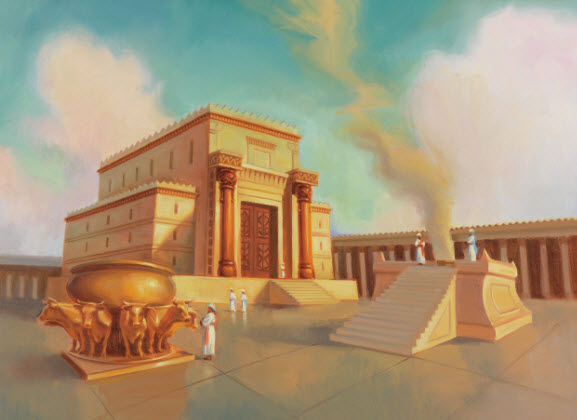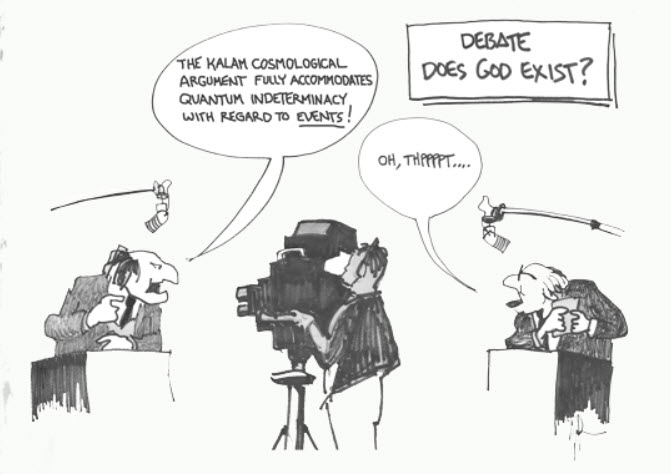Consider the following parable Jesus taught about forgiveness. (Below, Scripture is italicized, and the emphasis in square brackets, bold font, and subtitles is added by us)…
Matthew 18:21-35
“ …Peter came and said to [Jesus], “Lord, how often shall my brother sin against me and I forgive him? Up to seven times?” Jesus *said to him, “I do not say to you, up to seven times, but up to seventy times seven.
Jesus continued by sharing the following parable with Peter…
“For this reason [forgiveness] the kingdom of heaven may be compared to a king who wished to settle accounts with his slaves.
A Very Large Debt

When he had begun to settle them, one who owed him ten thousand talents [an amount equivalent to $3.48 billion today] was brought to him. But since he did not have the means to repay, his lord commanded him to be sold, along with his wife and children and all that he had, and repayment to be made.
So the slave fell to the ground and prostrated himself before him, saying, ‘Have patience with me and I will repay you everything.’ And the lord of that slave felt compassion and released him and forgave him the debt.
But that slave went out and found one of his fellow slaves who owed him a hundred denarii [around $622.75 today], and he seized him and began to choke him, saying, ‘Pay back what you owe.’ So his fellow slave fell to the ground and began to plead with him, saying, ‘Have patience with me and I will repay you.’ But he was unwilling and went and threw him in prison until he should pay back what was owed.
So when his fellow slaves saw what had happened, they were deeply grieved and came and reported to their lord all that had happened.
Slave’s Forgiveness Not Extended to Neighbors
Then summoning him, his lord said to him, ‘You wicked slave, I forgave you all that debt because you pleaded with me. Should you not also have had mercy on your fellow slave, in the same way that I had mercy on you?’
And his lord, moved with anger, handed him over to the torturers until he should repay all that was owed him.
My heavenly Father will also do the same to you, if each of you does not forgive his brother from your heart.”
Each of Us Sins and Needs Forgiveness
We apologize to anyone reading this blog who is sensitive to the term “slave”. We intend no offense.
The concept of enslavement in Judeo-Christian Scriptures is different than our contemporary concept of it.

Jesus’s teaching about enslavement does not focus on people groups but on spiritual principles. Jesus taught us that we are all enslaved to something or someone, and if we walk without forgiveness, we are a slave to that unforgiveness. We can’t be free.
In this parable, the king is God, and we are the slaves. We owe our lives for our sins and are enslaved to sin until we practice forgiveness. The debt is sin against the king [God] or sin against our “fellow slaves”, that is, our neighbors.
Jesus commanded us: “The foremost [commandment] is, ‘…You shall love the Lord your God with all your heart, and with all your soul, and with all your mind, and with all your strength.’ The second is this, ‘You shall love your neighbor as yourself.’ There is no other commandment greater than these.” (Mark 12:29-31)
Leviticus 19:18, Matthew 5:43, Matthew 19:19, Matthew 22:39, Mark 12:33, Luke 10:27, Romans 13:8, Romans 13:9, Romans 13:10, Galatians 5:14, and James 2:8 repeat this teaching. Its repetition shows the importance of the message. The commandment is so important that Jesus points out it leads to severe punishment if we don’t forgive. We practice forgiveness to love.
In Matthew 6:12, in the Lord’s Prayer, Jesus teaches us to pray: “Forgive us our debts, as we also have forgiven our debtors.” If we aren’t forgiving, we cannot truly love.
God forgives us and expects us to forgive all others.
The Original Sin and the Consequences

When God put the first man and woman on earth, He placed them in the Garden of Eden. He put every kind of plant in the garden and those for food.
And God commanded Adam and Eve not to eat of one tree in the garden. God called that tree the “Tree of the Knowledge of Good and Evil”.
Genesis 2:16-17 says,
The Lord God commanded the man, saying, “From any tree of the garden you may eat freely; but from the tree of the knowledge of good and evil you shall not eat, for in the day that you eat from it you will surely die.”
Adam and Eve had a good relationship with God, and they were companions of God. They enjoyed eternal life and fellowship with God until the serpent (the devil) got to Eve.
The Devil’s Original Temptation
Genesis 3:1-7
Now the serpent [devil] was more crafty than any beast of the field which the Lord God had made. And he said to the woman, “Indeed, has God said, ‘You shall not eat from any tree of the garden’?” The woman said to the serpent, “From the fruit of the trees of the garden we may eat; but from the fruit of the tree which is in the middle of the garden, God has said, ‘You shall not eat from it or touch it, or you will die.’”

The serpent said to the woman, “You surely will not die! For God knows that in the day you eat from it your eyes will be opened, and you will be like God, knowing good and evil.”
Notice that the devil got the woman to overthink and over-analyze the situation. This is the tactic the devil uses most often with people. “Oh, God didn’t mean that…are you sure He said that? He just doesn’t want you to be like Him!”
When the woman saw that the tree was good for food, and that it was a delight to the eyes, and that the tree was desirable to make one wise, she took from its fruit and ate; and she gave also to her husband with her, and he ate. Then the eyes of both of them were opened, and they knew that they were naked; and they sewed fig leaves together and made themselves loin coverings.
The Consequences of Disobeying God (Sinning)
God told Adam and Eve that they would surely die the day they ate from the tree. They obviously didn’t fall over dead after eating the fruit. They actually lived on for a long time after that. God’s message meant something else. The death God spoke of was spiritual. Spiritual death is “separation from God“. The curse God pronounced happened because they disobeyed God, and that began at the point they sinned.
Then to Adam He said, “Because you have listened to the voice of your wife, and have eaten from the tree about which I commanded you, saying, ‘You shall not eat from it’;
Cursed is the ground because of you; In toil you will eat of it all the days of your life.
“Both thorns and thistles it shall grow for you; and you will eat the plants of the field;
By the sweat of your face You will eat bread, till you return to the ground,
Because from it you were taken; for you are dust, and to dust you shall return.”
(Genesis 3:17-19)
They died spiritually. Humanity became separated from God, and our nature changed.
Then, God banished them from the Garden of Eden. “…He drove the man out; and at the east of the garden of Eden He stationed the cherubim and the flaming sword which turned every direction to guard the way to the tree of life.” (Genesis 3:24).
All people descended from Adam and Eve, and consequently, we are all born into sin. We refer to this as “the fallen state”. And after that point, every human being has died. We went from complete harmony with God to being alienated from God.
God is Love and We Started Out That Way Too
God is love (1 John 4:8). He created us in His image (Genesis 1:27). This means we were the definition of love until we sinned, and our nature stopped being like God’s. We needed reconciled back to God. Because of sin, we no longer had a connection with God. We needed God’s forgiveness.
Dealing With Sin
We don’t know much about how God dealt with sin from Adam to Moses. God provided details about important events that happened before Moses. Jewish Scripture records these events. We have some clues from stories about Abraham, Noah, Job, and others. There is a connection to God throughout the stories about these people. However, most people perished in sin in those days because there was no mechanism for forgiveness.
But we know that God loves all of His creation and wants us all to come to repentance. 2 Peter 3:9 says, “The Lord is not slow about His promise, as some count slowness, but is patient toward you, not wishing for any to perish but for all to come to repentance.” We believe, in that time between Abraham and Moses, that God made a way for people to cover their sins and have some semblance of a relationship with Him.

Then Moses came, and a formal process was given to cover the sins of the people.
But covering sin is a different thing than removing sin.
When people followed this process, God forgave their sins. But it didn’t reconcile them back to God. Scripture tells us that “all have sinned and fall short of the glory of God” (Romans 3:23).
We all have a need for forgiveness.
God’s Solution to Sin and Reconciliation
“The righteousness of God has been manifested, being witnessed by the Law and the Prophets [the Jewish Scriptures] … through faith in Jesus Christ for all those who believe. [We] are justified as a gift by [God’s] grace through the redemption [through] Christ Jesus; whom God displayed publicly as a [payment] in His blood through faith.” (Romans 3:21-24).
This could only be accomplished by a human being. “Just as through one man [Adam] sin entered into the world, and death through sin, and so death spread to all men, because all sinned…death reigned from Adam until Moses, even over those who had not sinned in the likeness of the offense of Adam, who is a type of Him who was to come...” [Jesus] (Romans 5:12,14). “If by the transgression of the one the many died, much more did the grace of God and the gift by the grace of the one Man, Jesus Christ, abound to the many. ” (Romans 5:15).
Jesus referred to Himself as “the Son of man” to emphasize that a man had to pay the price for sin to reconcile us to God.
This is why Jesus was sent to accomplish the reconciliation for all who receive it. And why Jesus (God) had to be born into a human body. Remember, the sacrifice for sin had to be an unblemished life, that is, without sin. Only Jesus was without sin. No other human could have done it.

Life Will Reign in Those Who Receive Jesus Christ
“The gift [Jesus paying the penalty for our sin with His life] is not like that which came through the one who sinned [Adam, and all people since Adam]; for on the one hand the judgment arose from one transgression resulting in condemnation, but on the other hand the free gift arose from many transgressions resulting in justification. For if by the transgression of the one, death reigned through [people], much more those who receive the abundance of grace and of the gift of righteousness will reign in life through the One, Jesus Christ.” (Romans 5:15-17).
This is Paul’s first-century language (translated from another language) telling us that God made it possible, through faith that Jesus Christ paid the cost of sin, for us to be reconciled back to God. God forgave it all so we could enjoy a reconciled life with Him once again!
The Four Words Used in Scripture for Sin
- Iniquity = gross injustice: wickedness. A wicked act or thing: sin
- Transgression = infringement or violation of a law, command, or duty
- Sin = offense against religious or moral law
- Tresspass = an unlawful act committed on the person, property, or rights of another. A violation of moral ethics.
These all amount to disobedience to God and wrong treatment of our neighbors, which goes against God and His nature. To be right with God, we need forgiveness for anything we do that fits these definitions.
Jesus’s Mission Is to Share the Kingdom of God and Make it Possible For Us To Be Reconciled Back to God
“…God did not send the Son into the world to judge the world, but that the world might be saved through Him.” (John 3:17).
Salvation (and forgiveness) is a free gift from God. Not a single thing can be done to earn salvation. Asking forgiveness is an act of repentance for the sins we have committed. Being forgiven is a gift that God gives us in response to our repentance. It must be a sincere motive in our hearts and minds for God to accept it as repentance.
To receive this free gift of forgiveness and salvation, we have to believe that we have sinned against God. To believe that, you have to know God and understand his nature. If God is love, there is no evil in Him.
Sin is, therefore, anything that goes against God’s perfect, loving nature.
What is God’s nature, then?
Habakkuk 1:13 says, “Your eyes are too pure to look on evil; you cannot tolerate wrongdoing…”.

God created us to be like Him, and only because of sin have we become anything else. We are born into sin, and we need God’s forgiveness to escape sin. Thank God that He sent His only begotten Son to give us that escape route from sin! And it is available to all who believe.
Because God is pure, sin and a sinful nature do not belong in Heaven. The Garden of Eden was a type and shadow of heaven.
Judgment day
In our fallen state, we cannot live in heaven or be reconciled to God. And Judgment Day is about reviewing our lives in the physical universe to determine if we accept God or reject Him. How we live this physical life is our testimony. And our testimony is the only thing we take with us when we pass from this life.
Even if you have lived your life to this point devoid of God, there is still hope! The beauty of repentance is that you have salvation whenever you change your heart and mind and commit to God. But it has to be genuine. Turning to God and then turning back away again is not sincerity or genuineness of heart.
Jesus said, “…No one, after putting his hand to the plow and looking back, is fit for the kingdom of God.“
Just make sure your decision to follow God is genuine and fully committed to Jesus.
God is love
“…God is love” (1 John 4:8). Paul describes Love in 1 Corinthians 13:
“…Love is patient, love is kind and is not jealous; love does not brag and is not arrogant, does not act unbecomingly; it does not seek its own, is not provoked, does not take into account a wrong suffered, does not rejoice in unrighteousness, but rejoices with the truth; bears all things, believes all things, hopes all things, endures all things…Love never fails…“
Forgiveness is Love. Love is something we all seek. We are all built to love. When someone returns our love with hate, we feel it.
We were created in God’s image.
When practicing Love, we don’t return hate for hate. Jesus responded in love even when He was hated.

We traded God’s image for the devil’s when we sinned. We have to repent of our self-centeredness and take on God’s image again.
Heaven is God’s Dwelling Place

God’s presence permeates heaven. No corner or recess in heaven is void of God’s presence. Heaven is God’s dwelling place. If He doesn’t want sin in his dwelling place, who can argue with that?
It would be as foolish as what the devil did that got him kicked out of heaven. Without forgiveness, we don’t belong in heaven and can’t get in.
Once we understand that we are eternal beings, everyone wants to spend eternity in the best place. The best place is in heaven with God.
We are eternal beings that temporarily inhabit a physical body, and after this physical body perishes, we move to higher dimensions and live eternally there. James 2:26 says: “Just as the body without the spirit is dead, so also faith without works is dead“.
We are composed of Body, Soul, and Spirit according to Scripture. A Full sense of our composition comes from studying all of Scripture. This physical body is a temporary dwelling place for our spirits. Our spirits are eternal.
“This is eternal life, that they may know You, the only true God, and Jesus Christ whom You have sent.” (John 17:3).
And that is exactly what God the Father sent Jesus to be a man to do. He sent Jesus to pay the price for our sins that alienated us from God. And that makes it possible for us to be reconciled to God once again so we can know God.
Commit to Relationship With Jesus/God
Jesus said: “…Everyone who has left houses or brothers or sisters or father or mother or children or farms for My name’s sake, will receive many times as much, and will inherit eternal life.” (Matthew 19:29).
What does it mean to follow Jesus? All of these other things were adjustments to behavior and attitude.

Jesus’s Calling
“…Jesus said to His disciples, “If anyone wishes to come after Me, he must deny himself, and take up his cross and follow Me…” (Matthew 16:24).
Following Jesus is a recurring theme in Christian Scripture. He asked all of the disciples to follow Him. In Matthew 16:24, we see the process of following Him.
Deny yourself
We first have to deny ourselves. Remember, we are born into sin and alienated from God. We grow up not knowing God, and we put false identity on. It’s a facade we carry around, telling ourselves, “This is who I am”. Those who aren’t called when they are small take on this identity. But God created us with a purpose—to reflect His image and to give Him glory in our identity. When we deny ourselves, we are giving up this old identity and surrendering it and our lives to God.
take up your cross

The cross is a symbol of execution. In a sense, Jesus was foretelling His own death by choosing to speak of the cross. But He was indicating to His followers how serious and final a commitment is to follow Him. It’s transformational. It’s life-changing. It meant complete and permanent denial of the old self. This isn’t something you can give lip service to and later go back to the old way of life and thinking.
Many American believers, and consequently believers worldwide who pattern after Americans, come to be “Christians” by praying what is known as “The Sinner’s Prayer”, made famous at Billy Graham Crusades. The Sinner’s Prayer is part of the process but is just the beginning. And actually, the Sinner’s Prayer is pretty young. It is far younger than Christianity.
Scripture doesn’t call out the “Sinner’s Prayer”. It is a device created to quickly get many people (at a Crusade, Revival, or church service) to give their lives to God. The disciples and early Christians would call for people to “repent and be baptized”.
“…Peter said to them, “Repent, and each of you be baptized in the name of Jesus Christ for the forgiveness of your sins; and you will receive the gift of the Holy Spirit…“
The Problem With The Sinner’s Prayer
Billy Graham was a good man and a great evangelist. His heart was in the right place when he endeavored to conduct his “Crusades for Christ”. He wanted people to be saved and not perish in their sins, experiencing forgiveness, which all Christians are commissioned to do.
However, when Billy made a call for people to receive forgiveness and deny themselves, take up their cross, and follow Jesus (an “Alter Call”), he would ask things like, “If you were to die in a car accident on the way home tonight, do you know where you would spend eternity?”
This is very thought-provoking, but it focuses on the person rather than following Jesus. It essentially left the door open for the repentant sinner to look at salvation as a kind of “Eternal Life Assurance Policy” rather than total surrender to Jesus and commitment to follow Him and His ways.

Jesus spoke about seeking “things” rather than a relationship with Him. In Matthew 6:31-34, Jesus said: “…Do not worry then, saying, ‘What will we eat?’ or ‘What will we drink?’ or ‘What will we wear for clothing?’ For the [non-believers] eagerly seek all these things; for your heavenly Father knows that you need all these things. But seek His kingdom and righteousness first, and all these things will be added to you…“
Many Christians have viewed Christianity as a kind of Christian Social Club exclusive to its members. Its members having a certificate of membership in their “Eternal Life Assurance Policies”. They skip the part where Jesus says, “Follow me.” Or worse, they believe they are following Him because they are church members.
Following Jesus
Those on the outside who are seeking God see this hypocritical behavior and don’t want to be a part of it. Instead of seeing Jesus being reflected, they see self-seeking people who belong to a religious club that excludes them.

To follow Jesus means to do what Jesus does. Jesus laid down His life for us. He practices love at every point of decision. To follow Jesus means we do what Jesus gave us as a living example.
To do that, we have to study Jesus, and there are two ways we can study Him: 1) through the Scripture journaled for us and 2) by becoming sensitive to the leading of the Holy Spirit. Remember, Peter, an eyewitness to Jesus, said we were to repent and be baptized, and we would receive the gift of the Holy Spirit.
Many churches today barely recognize the Holy Spirit, including the Christian denomination that recognizes the importance of water baptism—the Baptists. Yet the Holy Spirit has been the inspiration for the Old and New Testament writings, and even which of the many writings about God throughout Christian church history were included in the compilation of Scriptures. And the Holy Spirit took the place of Jesus walking through life with each of us.
Jesus said, “I tell you the truth, it is to your advantage that I go away; for if I do not go away, the Helper will not come to you; but if I go, I will send Him to you.” Jesus said this as He was preparing to ascend to heaven after His resurrection. This was not something intended only for those who were on earth when Jesus was, but for all who believe from that point going forward.
Role of the Holy spirit in our lives
“…The Helper, the Holy Spirit, whom the Father will send in My name, He will teach you all things, and bring to your remembrance all that I said to you…” Because Jesus said this, we recognize that the Holy Spirit plays a central role in our ability to follow Jesus. We, therefore, must develop ears to hear and sensitivity toward the Holy Spirit.

Paul said: “…Although you were formerly alienated and hostile in mind, engaged in evil deeds, yet He has now reconciled you in His fleshly body through death, in order to present you before Him holy and blameless and beyond reproach—if indeed you continue in the faith firmly established and steadfast, and not moved away from the hope of the gospel that you have heard, which was proclaimed in all creation under heaven…” (Colossians 1:21-22).
The Holy Spirit has the same role for us today that Jesus had with those He walked the earth with. This is how we stay established and steadfast in the faith.
We walk believing Jesus has reconciled us and presents us to the Father as “holy, blameless, and above reproach”. From the moment we first believe, until the day God calls us home, we view ourselves in this way, and we can wake up each morning believing this is who we are. It motivates us to avoid sinful behavior and to seek conduct that reflects and glorifies Jesus.
Conclusion
Jesus’s mission was to bring us the opportunity for forgiveness so that we could be reconciled to Him. We need reconciliation to have a relationship with God. Jesus told us to practice forgiveness with others because it was one way we love others. Forgiveness is a choice we make with eternal ramifications.
It is impossible to enter heaven and have a reconciled relationship with God unless we forgive.










